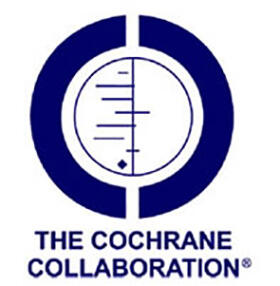
LSTM is home to the editorial base of The Cochrane Infectious Diseases Group, which contributes reviews to The Cochrane Library, a collection of databases that contain high-quality, independent evidence to inform healthcare decision-making. Issue 3 published this week features a highlighted review of current combination malaria therapies by LSTM’s Dave Sinclair.
Current combination malaria therapies recommended by the World Health Organisation (WHO) provide adequate treatment for mild malaria, according to a Cochrane Systematic Review of the evidence. However, selected trials had high failure rates for some combinations and evidence for the effectiveness of anti-malarial therapies is lacking in some vulnerable groups.
Malaria kills more than a million people each year and accounts for more than a third of public health expenditure in some badly affected countries. Uncomplicated malaria is a mild version of the disease, but it can become serious and life threatening if left untreated. Resistance to the older antimalarials has led the WHO to recommend treatments combining an artemisinin-based drug with another longer-lasting drug to combat resistance.
The review included 50 trials of artemisinin-based combination therapies (ACTs). Overall, the four combinations studied were effective for treatment of the most common type of malarial parasite. The researchers conclude that the recently introduced dihydroartemisinin-piperaquine performed well compared to the ACTs in current use and offers another potential first-line therapy for the disease. There were examples of treatment failure rates above 10% for all evaluated combinations. This is above the maximum allowable failure rate for a first line antimalarial as recommended by the WHO.
“Patterns of resistance change from place to place and over time, so these results have to be interpreted with some caution,” says lead researcher David Sinclair of the Liverpool School of Tropical Medicine in Liverpool, UK. “Our findings emphasise the need for continued vigilance in the monitoring of malaria and the development of resistance to antimalarial drugs.” In addition, there were few studies focusing on the most at-risk groups, which are pregnant women and young infants. “The lack of evidence supporting the use of these drugs in pregnant women and infants represents a critical gap in our knowledge that must be addressed,” says Sinclair. Full citation: Sinclair D, Zani B, Donegan S, Olliaro P, Garner P. Artemisinin-based combination therapy for treating uncomplicated malaria. Cochrane Database of Systematic Reviews 2009, Issue 3. Art. No.: CD007483. DOI: 10.1002/14651858.CD007483.pub2. http://www.cochrane.org/reviews/en/ab007483.html
For further information, please contact:
Alan Hughes, Communications Manager
Office: +44 (0)151 705 3308
Mobile: +44 (0)7759 243969